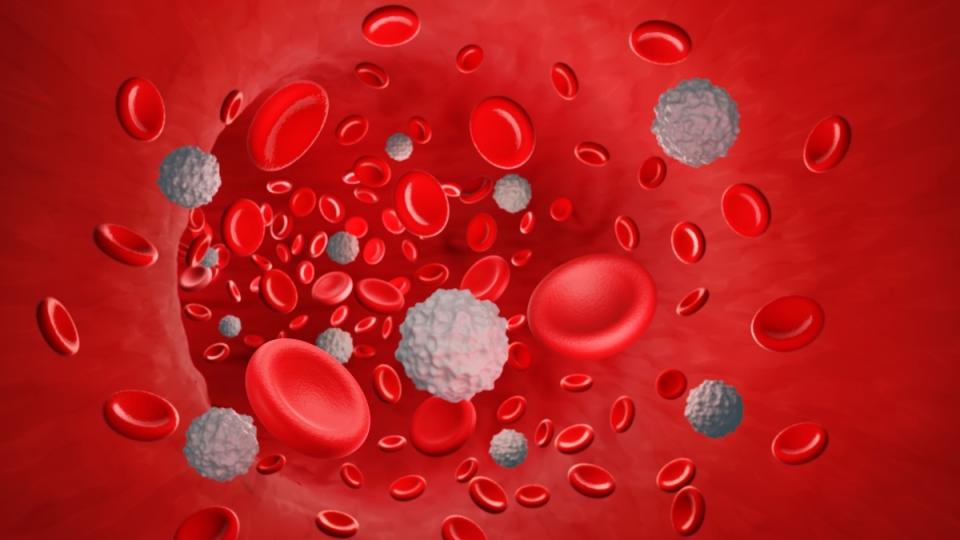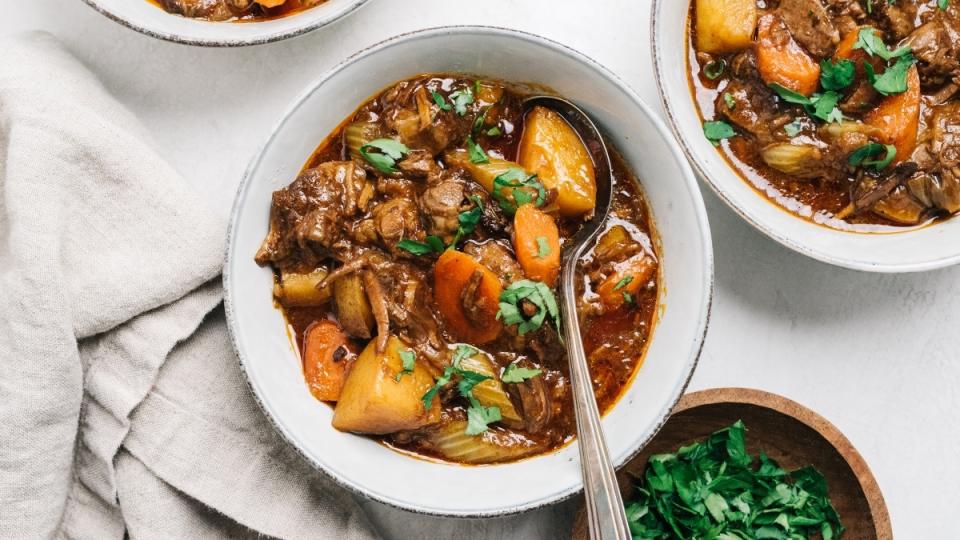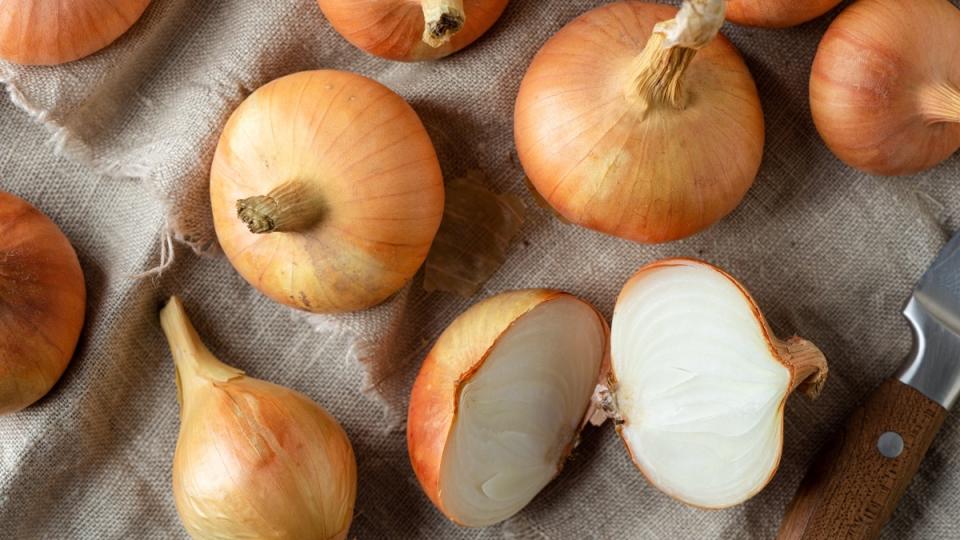Quercetin and Zinc Help Block Colds and Viruses — And They're Stronger Together
There’s never a good time to get a cold. But when your to-do list is a mile long and your calendar is full of gatherings with loved ones, getting sidelined by a virus is the last thing you need. So how can you keep your immunity up during cold and flu season — or anytime a nasty bug is going around? The key lies in combining the benefits zinc and quercetin, two nutrients that ward off illness and speed recovery. And the results are increased exponentially when this synergistic duo is taken together. Here, we break down what you need to know about these immunity boosters, plus how to pair them to sail through sick season and beyond.
How zinc bolsters immunity
Your body typically takes a two-pronged approach to fighting off germs. First, your innate immune system — often referred to as the body’s “first line of defense” — works quickly to try to keep germs from entering the body. If germs manage to sneak past the innate immune system, the adaptive immune system kicks in and fights against the specific type of infection.
Zinc wards off colds and viruses
The nutrient zinc works by boosting both innate and adaptive immunity. “Ensuring that we have a strong and primed immune system is important, and that’s what zinc does,” says Thomas Holland, MD, MS, a physician scientist and faculty member at RUSH University System for Health.
“Zinc supports our immune system by helping with the production, growth, and functionality of our white blood cells," he adds. "These are the cells that are primarily responsible for fighting viruses and bacteria and preventing infections like the cold.” Zinc works so well as keeping viruses from multiplying that it cuts the risk of colds and flu by 50%, suggests Wayne State University School of Medicine research. (Click through to learn how the spice star anise benefits the immune system to shorten a bout of flu very much like Tamiflu!)

Zinc speeds recovery
You’ve probably heard that zinc can work wonders when you have a cold. “Zinc may decrease the severity and duration of cold symptoms, allowing for a quicker recovery,” says Akua Ampadu, MD, a board-certified hospitalist physician specializing in internal medicine.
Taking zinc as soon as possible after the onset of cold symptoms can help you recover faster and make your symptoms less miserable. A review of studies in JRSM Open found that taking zinc lozenges shortened colds by three days compared to those who didn’t take zinc. And its germ-fighting benefits may extend beyond the common cold. Research in Nutrients found that people with healthy zinc levels were 76% less likely to suffer from serious COVID complications than people with a zinc deficiency.
Are you getting enough zinc?
Getting the recommended dietary allowance (RDA) of zinc is the first step in supporting a healthy immune system. Dietary guidelines for adults recommend that women get 8 mg per day and men get 11 mg of zinc per day. Most people can hit the RDA of zinc through diet alone. Oysters are the best source of zinc, with 28 mg of zinc per serving — or more, if you eat them raw. Zinc is also found in meat, shellfish, fortified breakfast cereals, lentils, dairy products, and eggs. (Click through for other ways canned oysters are good for you.)

How to boost your zinc levels
While getting the standard 8 to 11 mg of zinc daily is a great start, research in JRSM Open suggests that higher doses (upwards of 75 mg of zinc a day) helps shorten the duration of cold symptoms. For zinc to be as effective as possible, it’s best to take it within 24 hours after symptoms start. If you feel a cold coming on, here are a few smart ways to increase your zinc intake:
Zicam RapidMelts (Buy from Amazon, $10.99). Made with zinc, these tablets are “quick dissolving, generally well-tolerated, and have a nice citrus flavor,” Dr. Ampadu says. Steer clear of intranasal sprays, which can cause temporary — or possibly even permanent — loss of smell.
Airborne Immune Support Supplement (Buy from Amazon, $23.23). These chewable tablets include zinc along with other vitamins, minerals, and herbs to support immunity. “I personally like Airborne for its taste and ease of consumption,” Dr. Holland says.
A multivitamin. “Any multivitamin is appropriate for bridging most potential vitamin deficiencies one might have," Dr. Holland notes. "And they have zinc along with a lot of additionally beneficial vitamins that can help with cold recovery, like B vitamins." One to try: New Chapter Every Woman's Multivitamin (Buy from Amazon.com, $32.17).
Note: Zinc isn’t recommended for long-term use, and the daily upper limit for adults is 40 mg. For some people, taking too much zinc may cause side effects such as nausea, headaches, upset stomach, vomiting, or loss of appetite. High doses may also interfere with your body’s absorption of magnesium or leave an unpleasant taste in the mouth. It's best to talk with your doctor before supplementing at higher doses.
How quercetin bolsters immunity (and more)
You know what a powerhouse zinc is when it comes to keep your immune system in tip-top shape. But what you may not know is that another nutrient called quercetin can amplify the benefits of zinc. But what exactly is quercetin? The nutrient is a flavonoid, a type of plant compound found in fruits and vegetables. Flavonoids are known for their antiviral activity, antioxidant properties, and anti-inflammatory effects.
“Quercetin can support a healthy immune system by ensuring that when the inflammatory process is activated, it doesn’t get out of control and damage healthy cells,” Dr. Holland explains. “Flavonoids like quercetin — along with kaempferol, myricetin, isorhamnetin, and pelargonidin — help our immune system function as it should.”
Quercetin has total-body health benefits, too. It supports heart health, reduces the risk of developing type 2 diabetes, improves endurance during exercise, and may even inhibit the growth of cancer cells. It's also a potent natural allergy remedy, thanks to its antihistamine properties. In one study, folks who took 100 mg of quercetin twice a day reported fewer allergy symptoms (like sneezing, runny nose, and itchy eyes) than those who didn't supplement with queretin. That relief can go a long way during the months when fall allergies and cold season overlap. (Click through for our best natural ragweed allergy relief tips.)
Related: Quercetin for Heart Health: MD Says It’s Key To Lowering Blood Pressure + Cholesterol
How to boost your quercetin levels
Like zinc, quercetin is relatively easy to get through your diet. The key: Eating plenty of fruits and veggies. There’s no official RDA for quercetin, but most people get between 50 to 800 mg of flavonoids per day. Around 75% of that is quercetin. “These flavonoids are found in dark leafy greens, tomatoes, onions, extra virgin olive oil, strawberries, and a multitude of other fruits and vegetables,” Dr. Holland says.
Want an easy way to sneak more quercetin into your diet? Research shows onion skins are 53% higher in quercetin than onion flesh. You can use the skin to make onion peel tea (click through for an easy onion peel tea recipe). Or you can use it to make a savory broth or seasoning power (click through for more onion skin recipes).

If you’re worried that you’re not getting enough quercetin though diet alone, Dr. Holland says, “supplements are a wonderful bridge to keep you in a normal range and healthy.” Look for a quercetin-only supplement, such as Pure Encapsulations Quercetin (Buy from Amazon, $27.80). Or try one that combines quercetin with zinc and other immune-boosting ingredients, such as NOW Foods NAC, Quercetin and Zinc (Buy from Amazon, $21.74).
Note: If you take other medications, talk to your doctor before supplementing with quercetin, advises Raj Dasgupta, MD, Chief Medical Advisor at Sleep Advisor and a board-certified physician specializing in internal medicine, pulmonology, and critical care. Quercetin may interfere with certain medications, such antibiotics, blood thinners or corticosteroids. And high doses of quercetin may damage the kidneys.
The benefits of combining zinc and quercetin
When it comes shoring up your immune system or speeding recovery from a cold, you can maximize the benefits of quercetin and zinc by taking the two together. “Quercetin and zinc are both nutrients with immune-boosting properties,” Dr. Gasgupta. “Taking them together may have a synergistic effect, with quercetin increasing the absorption of zinc and zinc increasing the activity of quercetin.”
In fact, research in the Journal of Agricultural and Food Chemistry suggests quercetin doubles the ability of zinc to enter cells where it does its antiviral work, though Dr. Dasgupta notes that more research is needed. Ready to tap into the benefits of combining quercetin and zinc? Fred Pescatore, MD, recommends taking 50 mg of zinc plus 500 mg of quercetin daily when you feel a cold coming on or are under the weather.
For more ways to strengthen your immunity:
Ginger Shots Are One of Nature’s Best Immune-Boosting Tonics, Say Experts
The Active Ingredient in Star Anise Is the Same One That Powers Tamiflu
Hugs Have Been Study-Proven To Boost Immunity & Dramatically Lower Stress
This content is not a substitute for professional medical advice or diagnosis. Always consult your physician before pursuing any treatment plan.
First For Women aims to feature only the best products and services. We update when possible, but deals expire and prices can change. If you buy something via one of our links, we may earn a commission. Questions? Reach us at shop@firstforwomen.com

